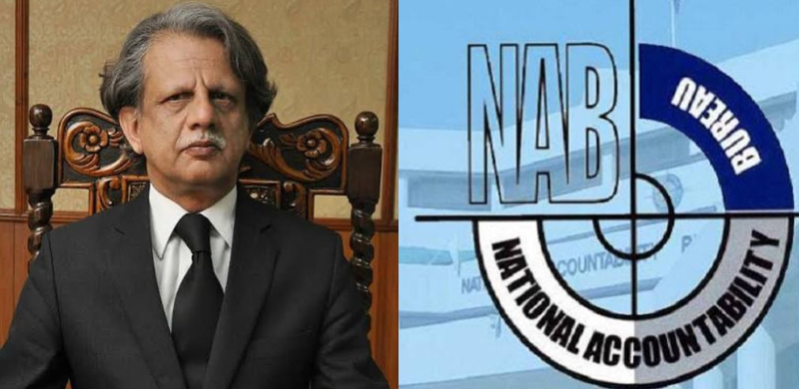
Justice Azmat Saeed’s appointment as head of the inquiry panel formed to investigate the Broadsheet scandal appears to present a conflict of interest. His appointment is controversial for the following reasons:
1) The judge served as the deputy prosecutor general of National Accountability Bureau (NAB) in 2000 for a year. He also later became special prosecutor with the NAB.
2) Justice Azmat is a member of the honorary Board of Governors of Shaukat Khanam Memorial Cancer Hospital, of which Prime Minister Imran Khan is the chairman.
3) He was part of the Supreme Court bench that issued the verdict disqualifying Nawaz Sharif as Prime Minister.
Given NAB, Imran Khan and Nawaz Sharif’s involvement in the Broadsheet fiasco, an individual associated with them in any way might not be able to ensure fairness while probing the matter.
The two key opposition parties in the country have expressed concerns about the inquiry panel to be led by former Supreme Court Justice Azmat Saeed to investigate the Broadsheet scandal.
Senior PML-N leader Ahsan Iqbal pointed out in a statement on Friday that the former Supreme Court judge was part of the bench in the Panama Papers case that disqualified Nawaz Sharif.
PPP Secretary-General Nayyer Bukhari said that the dishonesty of the PTI has become apparent after the nomination of the head of the committee. “It seems that the government wants to put all the blame on the previous governments. It is a sensitive matter which should be investigated in a transparent manner.”
According to the website of the Supreme Court, Justice Azmat was Deputy Prosecutor General NAB in Islamabad for a period of one year in 2000 and was later named Special Prosecutor NAB in 2001 to prosecute cases before the Attock Court and Rawalpindi Accountability Courts.
It is not clear, however, whether the retired judge played a role, if any, in the formulation and signing of the contract for the recovery of assets and/or its eventual termination.
1) The judge served as the deputy prosecutor general of National Accountability Bureau (NAB) in 2000 for a year. He also later became special prosecutor with the NAB.
2) Justice Azmat is a member of the honorary Board of Governors of Shaukat Khanam Memorial Cancer Hospital, of which Prime Minister Imran Khan is the chairman.
3) He was part of the Supreme Court bench that issued the verdict disqualifying Nawaz Sharif as Prime Minister.
Given NAB, Imran Khan and Nawaz Sharif’s involvement in the Broadsheet fiasco, an individual associated with them in any way might not be able to ensure fairness while probing the matter.
Opposition protests appointment
The two key opposition parties in the country have expressed concerns about the inquiry panel to be led by former Supreme Court Justice Azmat Saeed to investigate the Broadsheet scandal.
Senior PML-N leader Ahsan Iqbal pointed out in a statement on Friday that the former Supreme Court judge was part of the bench in the Panama Papers case that disqualified Nawaz Sharif.
PPP Secretary-General Nayyer Bukhari said that the dishonesty of the PTI has become apparent after the nomination of the head of the committee. “It seems that the government wants to put all the blame on the previous governments. It is a sensitive matter which should be investigated in a transparent manner.”
According to the website of the Supreme Court, Justice Azmat was Deputy Prosecutor General NAB in Islamabad for a period of one year in 2000 and was later named Special Prosecutor NAB in 2001 to prosecute cases before the Attock Court and Rawalpindi Accountability Courts.
It is not clear, however, whether the retired judge played a role, if any, in the formulation and signing of the contract for the recovery of assets and/or its eventual termination.
